Private Student Loan Default: What You Need to Know
If you’re facing a private student loan default, the potential consequences are serious — not just damage to your credit, but possible debt collections, wage garnishment, or even a lawsuit.
The good news is that there are options for getting help with your defaulted private student loans, and the more quickly you act, the better chance you have of avoiding those kinds of outcomes.
The first step in getting out of default is to know what you’re dealing with. Here’s a guide to the basics of what private student loan default is, how default happens, and how to get help with your defaulted private student loans.
- What is private student loan default?
- Private student loan default vs. delinquency
- What happens in a private student loan default?
- I need help with a private student loan default
What Is Private Student Loan Default?
Missed Student Loan Payments
Most commonly, private student loan default happens when you miss payments on your private student loan for a certain period of time. The number of missed payments that can trigger a default vary by lender.
Some private student loans may not be considered to be in default until you’ve missed at least three months of payments; other lenders may consider you to be in default after you’ve missed only a single payment.
To know what your lender considers a default, you’ll need to review your student loan promissory note — that’s the contract you signed when you took out your private student loan. In your promissory note, there should be a section in which your lender defines exactly what conditions will cause your loan to be considered defaulted.
Other Causes of Default
Besides missing payments, certain other situations could cause your private student loans to go into default.
For instance, if your lender discovers that you (or your co-signer, if you have one) have misrepresented information on your private student loan application or accompanying application documents, your lender could consider your loan to be immediately defaulted, regardless of whether you’ve made all your student loan payments on time.
If your lender is notified that you or your co-signer have entered bankruptcy, that could also lead to your lender declaring your private student loans to be in default. Some lenders may consider your student loan to be defaulted if your co-signer passes away.
Remember, to make sure you know what your risks are for a private student loan default, you want to review your loan agreement (your student loan promissory note) to know exactly what your lender considers to be a default.
Private Student Loan Default vs. Delinquency
A key question when you’re facing a private student loan default is: Are you in default on your private student loans or merely delinquent?
You may have heard both these terms, default and delinquency, in reference to student loans, and it’s important to understand the difference between them.
Both default and delinquency refer to the same issue — missed payments on a student loan — but they differ in their severity.
Delinquent Student Loans
A private student loan becomes delinquent when you miss a payment or make a late or insufficient payment. Depending on the lender, you could be considered delinquent when your full payment is late by even just one day.
Your private student loan will remain delinquent until you’ve made all the payments you’ve missed or until you’ve made some other acceptable arrangement with your lender (such as a student loan forbearance or other student loan repayment-assistance program).
Typically, your student loan delinquency will be remedied once you’ve made your missed payments or made other repayment arrangements with your lender.
Defaulted Student Loans
A private student loan becomes defaulted after it’s been delinquent for a certain period of time. (The amount of time that has to pass before your unpaid private student loan is considered defaulted varies from lender to lender.)
Unlike a student loan delinquency, a student loan default may not be able to be remedied simply by making your missed payments.
Once a private student loan goes into default, the entire loan can become due, meaning that your lender can demand that you immediately pay off the entire balance of your private student loan.
Avoiding Private Student Loan Default
If you find that you’re having trouble making payments on your private student loans, you should contact your lender right away to see if you can work out some kind of payment arrangement with them, possibly through a student loan forbearance or other repayment-assistance program.
Since private student loan default is much more serious than delinquency, and since it has a greater negative effect on your credit, it’s usually best to try to get repayment help for your delinquent student loans before they become defaulted.
What Happens in a Private Student Loan Default?
If you’ve moved past the student loan delinquency stage and your lender has now deemed that your private student loans are in default, you need to be prepared for what can happen next:
- Student loan collections
- Lawsuits
- Wage garnishments and asset seizures
- Credit score damage
- Strained relationship with your co-signer
The consequences of default can be intimidating, but it’s important to keep this in mind: A private student loan default can still be fixable, and there are different options you can look into if you need help with defaulted private student loans.
- Student Loan Collections: Once you’ve gone into default on your private student loan, your lender may be able to demand payment of the remaining loan balance.
If you’re unable to pay off your defaulted private student loan in its entirety, your lender may send your student loan to collections, at which point you could be facing an increase in your interest rate — which can make your outstanding debt grow even faster — and you may be assessed collection fees, which will be added to the loan balance you already owe.
- Student Loan Lawsuits: Aside from debt collection actions, your lender may also choose to pursue a student loan lawsuit against you (and your co-signer, if you have one), in order to try to collect the loan balance they’re owed.
In the case of a lawsuit, your lender may be able to hold you responsible for any reasonable legal and attorney fees they incur. Like collection fees, these legal fees would be added to the student loan balance you already owe.
- Student Loan Wage Garnishments / Asset Seizures: Ultimately, in the most serious cases, after pursuing legal action against you and obtaining a court judgment against you or your co-signer, your lender may be able to garnish your tax refunds, garnish part of your wages, or even seize some of your assets — which could involve putting financial levies on your bank accounts or putting a lien on any properties you or your co-signer own — as a way of forcing repayment of your private student loan debt.
- Credit Score Damage: Not only will you be facing potential collections, garnishments, and legal actions against you, but a private student loan default can be devastating to your credit, negatively affecting your credit score more severely that simply late or missed payments.
With a student loan default on your credit report, it will be extremely difficult for you to qualify for any other types of credit, such as a home loan, auto loan, or credit card. Credit reports are also often accessed by prospective landlords and employers; your defaulted student loans could interfere with your ability to rent an apartment or even get a job.
Once your private student loans have gone into default, that default could remain on your credit report for up to seven years, meaning that you could be dealing with the credit consequences of a default for years to come.
- Strained Relationship With Your Co-Signer: If, like many people, you have a co-signer on your private student loans, another potential consequence of a student loan default — one that doesn’t often get mentioned but that can be just as damaging — is its effect on the relationship between you and your co-signer.
When you default on your private student loans, any actions that a lender can pursue against you, the lender can also pursue against your co-signer. Just like you, your co-signer will be confronted with possible collections, garnishments, and lawsuits.
And just like your credit, your co-signer’s credit will also take the blow of a default. If your co-signer tries to buy a home, get a car, or apply for a job, the defaulted student loans on their credit could prevent them from being able to qualify.
These far-reaching and serious ramifications can obviously put a strain on your relationship with your co-signer. Whether your co-signer is a friend or family, your defaulted student loans have now affected their credit and their finances in a harmful and long-lasting way.
If you’re unable to pay off your defaulted private student loan in its entirety, your lender may send your student loan to collections, at which point you could be facing an increase in your interest rate — which can make your outstanding debt grow even faster — and you may be assessed collection fees, which will be added to the loan balance you already owe.
In the case of a lawsuit, your lender may be able to hold you responsible for any reasonable legal and attorney fees they incur. Like collection fees, these legal fees would be added to the student loan balance you already owe.
With a student loan default on your credit report, it will be extremely difficult for you to qualify for any other types of credit, such as a home loan, auto loan, or credit card. Credit reports are also often accessed by prospective landlords and employers; your defaulted student loans could interfere with your ability to rent an apartment or even get a job.
Once your private student loans have gone into default, that default could remain on your credit report for up to seven years, meaning that you could be dealing with the credit consequences of a default for years to come.
When you default on your private student loans, any actions that a lender can pursue against you, the lender can also pursue against your co-signer. Just like you, your co-signer will be confronted with possible collections, garnishments, and lawsuits.
And just like your credit, your co-signer’s credit will also take the blow of a default. If your co-signer tries to buy a home, get a car, or apply for a job, the defaulted student loans on their credit could prevent them from being able to qualify.
These far-reaching and serious ramifications can obviously put a strain on your relationship with your co-signer. Whether your co-signer is a friend or family, your defaulted student loans have now affected their credit and their finances in a harmful and long-lasting way.
Get Help With Private Student Loan Default
The most important thing to know is that even if you find yourself in private student loan default, your situation isn’t hopeless.
There are avenues you can pursue that may be able to help you with getting out of default, obtaining affordable monthly payments, and paying off your private student loans.
Private Student Loan Refinance
In a student loan refinance, you take out a new student loan that pays off your original loan and provides you with new repayment terms, which can include a lower interest rate, more time to pay back your loan, and a more affordable monthly payment.
A private student loan refinance can be beneficial in that it pays off your original private student loan, so that you’re no longer delinquent or defaulted on that loan.
However, student loan refinances are often only made available to qualified, credit-worthy borrowers. Being in default on your private student loans may disqualify you from being able to refinance under most student loan refinance programs.
If you’re in private student loan default and looking for refinance options, you’ll need to look for lenders who are open to refinancing defaulted private student loans.
Private Student Loan Settlement
In a successful private student loan settlement, a negotiation is made with your student loan lender to settle your defaulted private student loans for less than what you owe — in other words, your lender agrees to accept a partial payment of your remaining loan balance in lieu of a full payment, in order to consider the loan “settled.”
Once you’ve settled your defaulted private student loans, although you will no longer owe money on those loans, you could be facing a hefty tax burden come tax-time.
In a typical debt settlement, the difference between the amount of money you originally owed your lender and what you finally paid as your settlement — the so-called “discharged” or “forgiven” student loan debt — can be reported to the IRS as cancelled debt. The IRS treats cancelled debt as income, meaning you could end up being charged federal taxes on that part of your original student loan debt that you thought had been simply settled away.
Private Student Loan Rescue
Outside of private student loan refinance and student loan settlement options, a private student loan rescue program could also offer a custom solution to your student loan problem.
Yrefy’s student loan rescue program allows qualified borrowers to pay off their defaulted private student loans without the tax consequences of a typical debt settlement. You can get out of default, avoid the extra taxes that could come with discharged student loan debt, and know that your rescue program will be custom-tailored to your own individual situation, helping you to lower your interest rate and providing you with a monthly student loan payment that you can afford.
Unlike most student loan refinance options, Yrefy’s student loan rescue program does not have any minimum credit-score requirements, and it doesn’t disqualify anyone just for having defaulted private student loans.
If you’re looking for help with a private student loan default and you’re looking for alternatives to a student loan refinance or student loan settlement, a student loan rescue may offer the solution you’re looking for.
For more information about Yrefy’s student loan rescue program, contact us at (888) 819‑9556.





